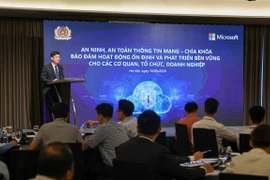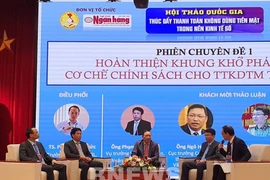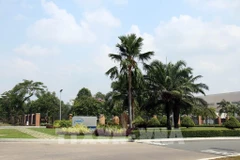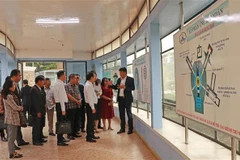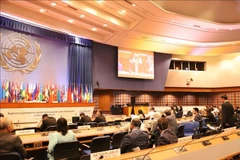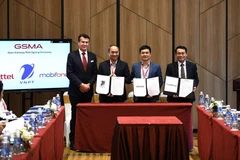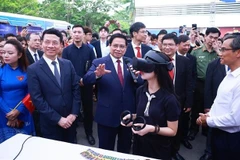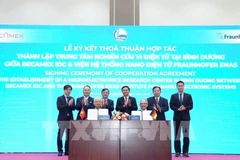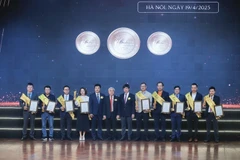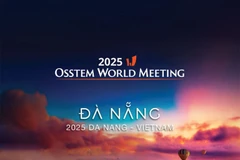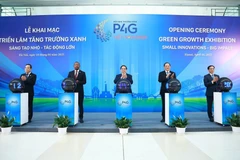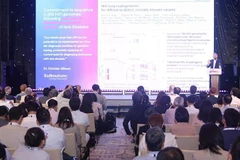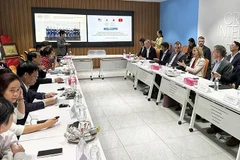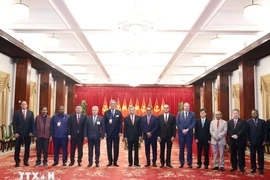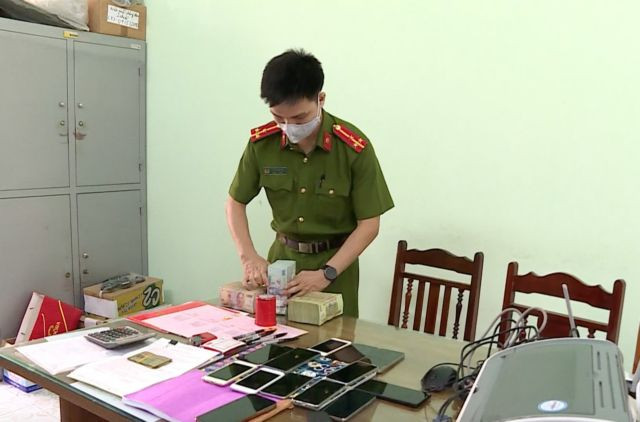 On June 3, Hung Yen province's police announced they had busted a gang in Yen My district, with members between 20-40 years old, who ran an online gambling and football betting ring from early 2021 on platforms like Facebook, Zalo, SMS and the website Bmg8899.net. (Photo: VNA)
On June 3, Hung Yen province's police announced they had busted a gang in Yen My district, with members between 20-40 years old, who ran an online gambling and football betting ring from early 2021 on platforms like Facebook, Zalo, SMS and the website Bmg8899.net. (Photo: VNA) Vietnam News Agency reported that the number of hi-tech crimes has increased inrecent years. During the COVID-19 pandemic, when social distancing is appliedin many areas and more people work from home, this type of crime has been moreactive, especially in gambling, fraud and property appropriation.
The Ministry of Public Security is acting fast to fight cyber securitycrimes, using high technology themselves.
Local divisions of cybersecurity and high-tech crime prevention and controlhave been established in many provinces and cities to step up that effort.Although many divisions are newly established, they have seen positive results.
The Division of Cyber Security and High-Tech Crime Prevention and Control in thecentral province of Quang Nam has recently cracked down on an illegal ring ofonline gamblers in the form of online football betting. This was the firstvictory of the division after only two days of establishment.
Captain Nguyen Trung Duc, deputy head of economic security department, Phu Tho province’spolice, who cracked down on trillion-dong online gambling case of Phan Sao Namand Nguyen Van Duong in 2018, said: “The key to combating cybercrimes is tocollect online evidence. By understanding how criminals commit the crime, it ispossible to collect evidence and fight effectively.
“In the modern age of technology, the methods and tricks of the criminals areunpredictable. The work pressure is so much heavier.
"Meanwhile, the masterminds and leaders who use high technology to commitcrimes are all knowledgeable about informatics and always look for ways toeradicate evidence. Finding clues is extremely difficult.”
Major General Nguyen Minh Chinh, director of the Department of Cybersecurityand High-Tech Crime Prevention under Ministry of Public Security, said thecyber security situation has seen many new and more complicated developmentsthat threaten information security around the world, especially in the ASEANregion. ASEAN’s high percentage of internet users (about 75 per cent of thepopulation, equivalent to 480 million people) is being targeted by cyberattacks.
Cybercriminals with multiple purposes are also targeting critical informationinfrastructures of government agencies, businesses, organisations and people.New methods and tricks appeared in cyberattacks, thoroughly exploiting securityholes of online meeting applications, spreading malicious codes, causing manyserious consequences, he said.
According to the public security ministry, in 2020, more than 400 pages ofState agencies out of more than 5,000 websites and portals in Vietnam werehacked. Cybercriminals also committed transnational law violations to defraudand appropriate properties. The main trick is to impersonate law enforcementagencies to commit fraud online, by phone or through multi-level businessmethods.
Major General Chinh said the ministry had sped up co-operation with lawenforcement agencies of ASEAN countries and many other countries around theworld to investigate, verify and handle many cases related to the use of drugsand high technology.
However, Vietnam and a number of ASEAN countries are lacking a legal frameworkin cybersecurity and have not kept pace with the rapid changes of the world’scyberspace, he said.
“Cybercrime is becoming more sophisticated and complex. At ASEAN regionallevel, there is still no common legal document governing cooperation,” he said.
Some ASEAN countries have focused on building their own laws. But eachcountry's legal opinion still has certain differences. Being behind with technology isalso a barrier, he said.
The Vietnamese Ministry of Public Security has developed a comprehensive planto raise awareness and capacity of all relevant stakeholders in cybersecurity.The Ministry of Public Security believes that, in addition to the efforts ofpolice, it is necessary to further promote public-private cooperation betweenlaw enforcement agencies on cybersecurity and technology corporations. Statemanagement agencies need to strengthen dialogue and update cybersecuritypolicies for the business community, he said./.

